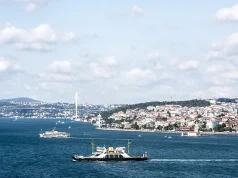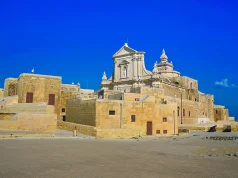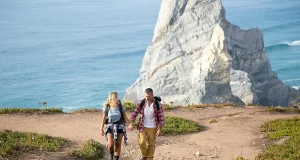Tourism has swept across Portugal in a transformative wave. In 2023 alone, the country saw a staggering 77 million overnight stays and over 30+ million visitors eager to explore its rich culture, stunning landscapes, as well as its historic charm. While much of this attention has been focused on the mainland, a two-and-a-half-hour flight west will land you on São Miguel Island, the largest of the nine that make up the Azores archipelago. Here, tourism has been a bit slower to develop—that is until recently. In 2023, American travelers finally took notice, declaring the Azores the “Hawaii of the Atlantic” and catapulting the islands into the spotlight as a must-visit destination.
And the ocean is at the heart of this newfound appeal. The Azores is known for its extraordinary underwater ecosystems, with whales, sharks, rays, and countless other marine species stopping over on their paths. Social media and ocean photography have further amplified the region’s allure, sharing breathtaking encounters with a global audience. But with this surge in popularity comes its challenges. The rapid influx of visitors has created opportunities and pressures that local communities and nonprofits are attempting to balance.
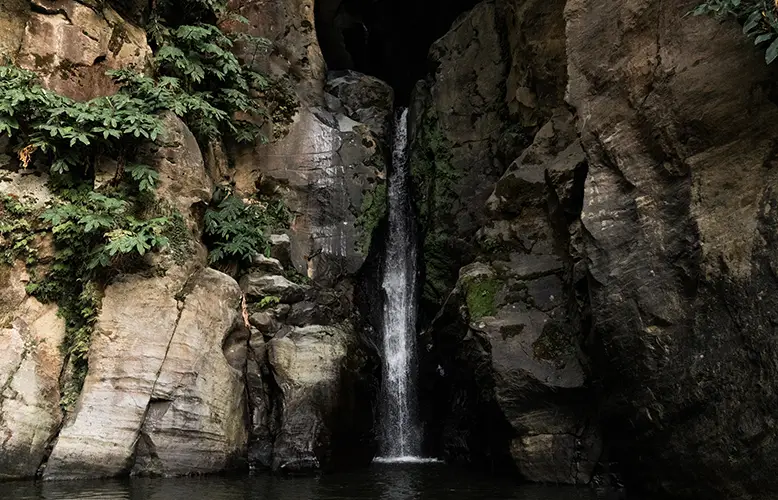
One organization leading this charge is the Ocean Azores Foundation, based on São Miguel, along with its eco-conscious estate, Solar Branco. While the estate serves as a model for sustainable tourism, the foundation is focused on tackling complex issues like dolphin swimming, overtourism in whale watching, and other efforts to promote responsible ocean practices. At the helm of this is the charismatic founder, Ali Bullock, a former British marketer who has called Portugal home for years. Ali has become a driving force for change, navigating the intricacies of island culture while addressing the environmental challenges posed by an ever-growing tourism industry.
We arrived in the Azores to meet Ali and dive with his team, including Francisco Garcia, a São Miguel native and rising ocean photographer. Francisco dedicates his life to showcasing both the wonders and the threats facing marine life, using his work to inspire action. Together, he and Ali are helping to put the Azores on the map, in a different way—one that prioritizes sustainability. Pulling up to Solar Branco, it was clear that every detail of the property was intentionally designed with eco-consciousness in mind—a reflection of the thoughtful approach that defines Ali’s work and long-term vision.
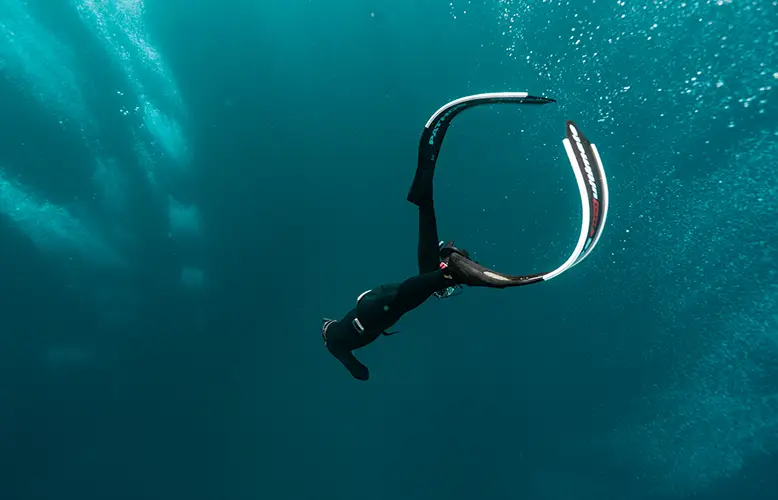
Solar Branco is not your typical eco-estate by any means. While many hotels in the Azores promote sustainability initiatives, Solar Branco takes it further. For example, the estate is a zero-waste property, powered by solar energy, and runs entirely without pesticides or single-use plastics. Recycling is rigorously implemented, and food waste is managed through a partnership with their fun-loving 60-70 chickens, who do their share by turning scraps into natural compost. Energy monitoring ensures efficiency, and a portion of every guest’s stay goes directly to the foundation, supporting the estate’s more complex marine conservation efforts. Beyond the environment, Solar Branco invests back into its community, offering wages above the local standard, providing growth opportunities for employees, and encouraging staff to volunteer with the foundation. The whole system is connected!
This commitment to sustainability extends to the estate’s restoration projects as well. Solar Branco has transformed five historic buildings into a boutique retreat with eight suites. The property spans 10,000 square meters of gardens, where ongoing rewilding efforts are returning the landscape to its 19th-century roots. Hawaiian and palm trees from the estate’s original design have been preserved, while endemic plants have been reintroduced. Solar Branco is also home to an impressive apiary—currently hosting 40,000 bees, with plans to grow to 100,000 by year’s end. These bees travel thousands of kilometers, playing a vital role in supporting nearby organic farms, which Solar Branco is proud to partner with exclusively. This meticulous care for the land reflects Solar Branco’s philosophy: sustainability isn’t just a nice feature; it’s their way of life.
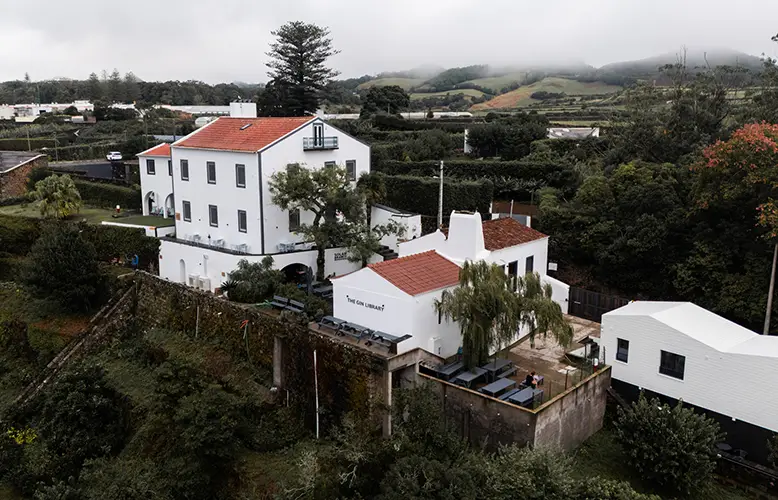
Arguably the most distinctive feature of Solar Branco is Ali’s beloved gin library, a space that exudes personality and purpose. Housed in a restored farmhouse on the property, the library is on track to become the largest gin collection in the world (yes, you read that correctly!) Currently boasting 1,706 bottles from 71 countries, the collection is projected to grow to 2,500 bottles by early next year. But this collection isn’t a static display of gin. Walking into the library is a dynamic, interactive, highly personal experience. Guests are encouraged to contribute to the collection by bringing a bottle of gin to swap for one of Ali’s own gin creations, a concept poetically named, “Ghosts of the Ocean.” This tradition took off during the pandemic and would gift gin enthusiasts with a piece of the Azores, while guests additionally would leave their own offerings behind. When travel resumed in 2021, the library quickly became a global attraction, earning features in Forbes, Atlas Obscura, Time Out, Condé Nast Traveler, Vogue, and The Financial Times.
The gin library’s roots trace across Ali’s globetrotting career. With over 30 weeks a year spent on the road as a marketing manager for companies like Nissan, Redbull and WWF, he developed a passion for gin, collecting bottles during his stays in top-tier hotels. When he relocated to the Azores, he merged this passion with a vision to create a truly unique space at Solar Branco. Initially starting with just 300 bottles in 2019, the library has grown exponentially, fueled by Ali’s acquisitions and the enthusiastic contributions of guests. What began as a personal project has transformed into a cultural touchstone, where the act of exchanging gin connects travelers from around the world.
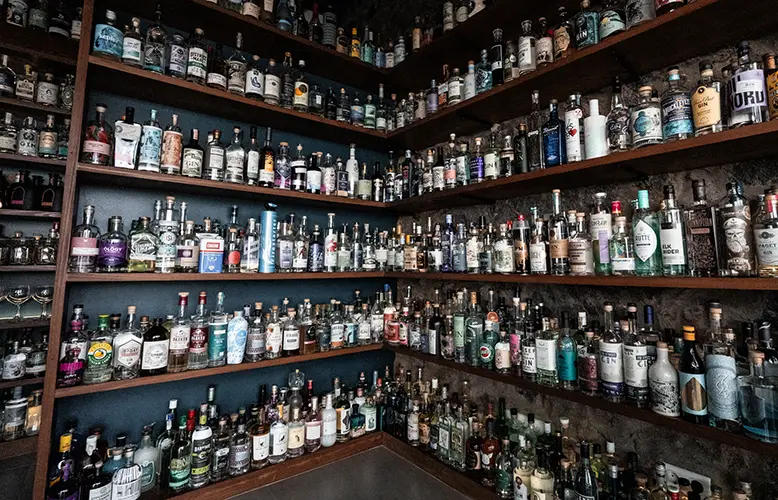
Ali’s gin label, the Ghosts of the Ocean, further elevates the library’s mission. Each of the nine unique gins tells a story rooted in the Azores’ history and marine life. The range kicked off with the Balaia Edition Seaweed Gin, designed to fundraise for the Azores’ World Heritage Site application. Other standout offerings include the September 10, 1987 Edition, commemorating the last whale killed in the Azores, and the Azorean Pineapple & Chili Gin, a tribute to the island’s unique flavors. Proceeds from gin sales go directly to the foundation, ensuring that every purchase supports marine conservation and sustainable tourism that the team here is working so hard to drive forward.
Ghosts of the Ocean is available at the Solar Branco gin library, the on-site tea factory, and select local bars and restaurants around the Azores, but the product itself is intentionally exclusive. Only this year did it expand to Lisbon but it won’t be found in supermarkets for example—a deliberate choice to preserve its value and connection to the Azores. With an estimated 10,000 bottles expected to sell in 2024, Ali’s gin is starting to become a symbol of community, storytelling, and sustainable action.
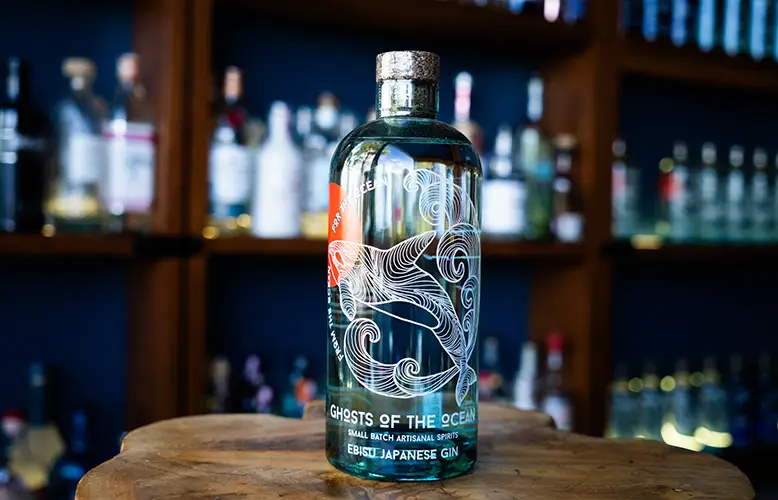
As we made our way through the gin library, we encountered bottles with some of the most fascinating titles, designs, and stories. From Dr. Squid Gin—made with real squid ink and hailing from Cornwall, England—to Nine Sisters Ocean Gin, which poetically calls itself “the spirit of the waves,” each bottle seemed to hold its own personality. The collection wasn’t just vast; it was alive, a tapestry of flavors and memories curated from around the globe. Ali’s encyclopedic knowledge of the collection was equally impressive. He could tell you exactly who gifted him a given bottle, where they came from, how it tasted, and even the more intimate personal stories surrounding each one. It was clear that for Ali, gin was more than a spirit—it was a way to connect people and places.
If there’s one thing that could rival the charms of the gin library, it was breakfast at Solar Branco. Ali’s wife, Caroline Sprod—fondly referred to as Mrs. B by everyone on the estate—has turned morning meals into something unforgettable as the co-founder of the estate. Her signature Pão de Queijo (Azorean-style cheese bread) became my personal obsession. Handmade and packed with flavor, these irresistible cheesy bites had me reaching for seconds—and thirds—every single morning. I was so smitten that I begged Mrs. B for her recipe, determined to recreate a taste of the Azores at home. Simple yet utterly addictive, these little cheese breads are the kind of thing you’ll dream about long after leaving Solar Branco, and are a testament to the attention to detail that Mrs. B is all about here. In fact, she single-handedly keeps this operation running at near max capacity all year round!
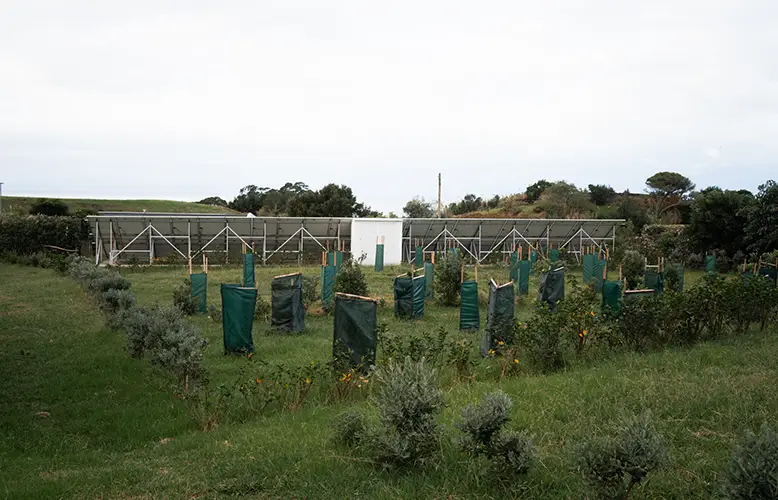
But at the heart of Solar Branco and its many initiatives lies the Ocean Azores Foundation without a question. Founded with a mission to protect the archipelago’s marine ecosystems, the foundation began as an effort to establish a UNESCO World Heritage Site for the Azores. This critical designation had stalled due to a lack of interest from both the government and local whale-watching tour operators. Seeing the gap, Ali began engaging with locals already working to make a difference in small but meaningful ways. Many were surprised to meet someone who cared so deeply and were inspired to act when they realized what could be achieved.
The challenges many nonprofits face in the Azores are significant: limited research, insufficient funding, and a lack of resources such as boats and comprehensive databases to track whale sightings. Yet, the foundation is pushing beyond that, collaborating on projects that address plastic pollution, supporting the transition from whale hunting to whale tourism, and focusing heavily on protecting cetaceans—whales, dolphins, and porpoises—that define the Azores’ marine biodiversity.
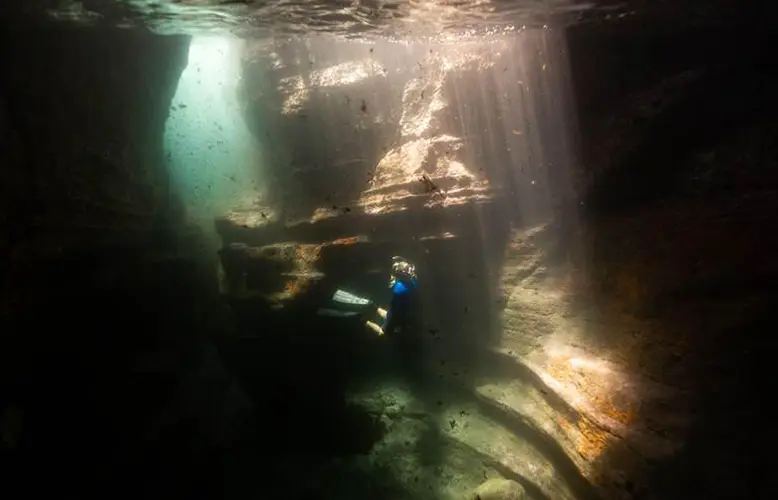
Central to these efforts is the foundation’s media house, which uses compelling photography and storytelling—including Francisco’s work which won him ocean photographer of the year in 2023—to showcase the beauty and vulnerability of the Azores’ ecosystems. These striking visuals greet travelers as they arrive at the airport, fostering an immediate connection to the natural wonders of the archipelago. What sets the media house apart is its open-source approach; all of the content is freely available to anyone who wants it. Ali and his team have painstakingly secured the necessary permits to photograph marine life like whales, ensuring others don’t have to navigate those hurdles themselves.
But one of the foundation’s most urgent battles is in addressing the ethics of swimming with dolphins and whales. While swimming with whales is strictly regulated and requires specific permits, swimming with dolphins remains legal—and problematic. Some whale-watching operators have voluntarily ceased the practice, but others persist, often unsustainably. Dolphin populations near Pico have been declining, and the sight of up to eight boats surrounding a single pod can place immense stress on these animals. Despite the growing evidence of harm, short-term profits drive the continuation of this activity. Ali and the foundation are resolute: “We have to stop the activity—it just doesn’t make sense.” Instead, they have advocated for sustainable whale watching, which creates meaningful human connections with marine life while ensuring their wellbeing.
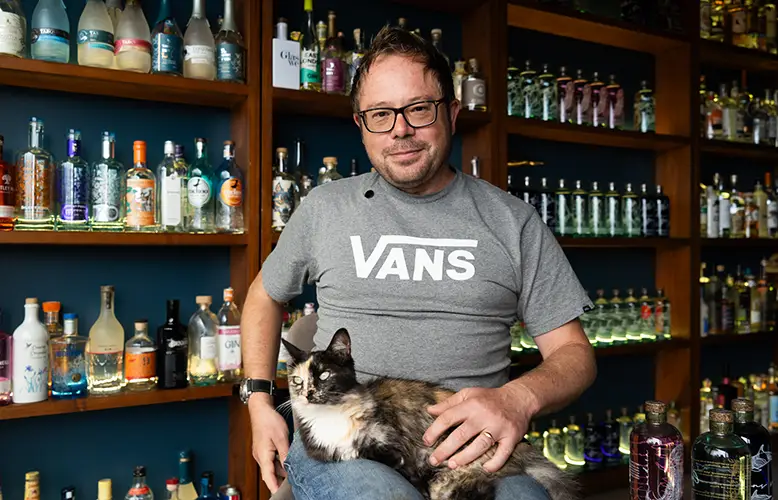
For Ali and the Ocean Azores Foundation, conservation is a long walk, not a sprint. “There are no immediate solutions,” he reflects, underscoring the importance of time, patience, and resources to drive meaningful change. With São Miguel and the Azores experiencing an unprecedented rise in tourism, Ali’s goal is to ensure that this growth doesn’t come at the cost of the environment. By focusing on sustainability, education, and responsible practices, the foundation aims to protect the marine ecosystems that draw visitors while fostering a deeper respect for the delicate balance of life here. Their ultimate vision is ambitious yet vital: by 2030, they hope the Azores will be recognized as the whale sanctuary of the world. This designation would not only cement the islands as a premier sustainable tourism destination, but also inspire local and global communities to rally behind the preservation of this extraordinary region secluded in the expanse of the Atlantic.


